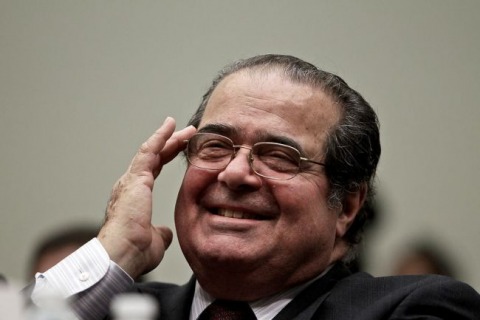
Question:
Apropos the death of Justice Antonin Scalia, the non-Catholic religion reporter Terry Mattingly comments, “I would … have liked to have seen someone talk to Catholic scholars about the degree to which 'natural law' did or did not influence” him.
A lawyer, not a scholar, I am not sufficiently knowledgeable about Scalia's views on the natural law to know the answer. Do you have any thoughts on this?
Reply:
Justice Scalia was a paradox. He believed in natural law; it was part of his Catholic faith. However, he took his judicial oath to mean that he must uphold the “positive” or enacted law, or, if he was conscientiously unable to do so, resign. Needless to say, the natural law does not allow vows to be set aside casually.
The Justice took his oath to imply that judges must not allow the natural law to enter into their reasoning about how cases should be decided. Nothing mattered but what the enacted law actually meant. For judges to consider the natural law would in his view be a form of judicial activism, an unauthorized usurpation of the trust committed to legislatures and constitutional conventions.
Natural law thinkers agree that the judicial office does not authorize judges to rewrite laws and constitutions by judicial fiat. However, in their view it does not follow that judges may not consider the natural law, because no formula of words is entirely self-interpreting. Consequently, no matter how determined one is to defer to the enacted law, one must consider the natural law just to know what it means.
So legislators must rely on natural law in order to enact the positive law, but judges must rely on natural law in order to understand it. The words which humans use presuppose the law written on the human heart; they cannot help doing so.
I will always remember Justice Scalia for his great generosity in speaking to a seminar on natural law which I led for six weeks at Calvin College in 2003. The judge gave us an entire day, submitting to our questions for three full hours, sharing a working lunch with us for another hour and half, then giving a semi-public lecture, followed by yet more questions. He will be missed.